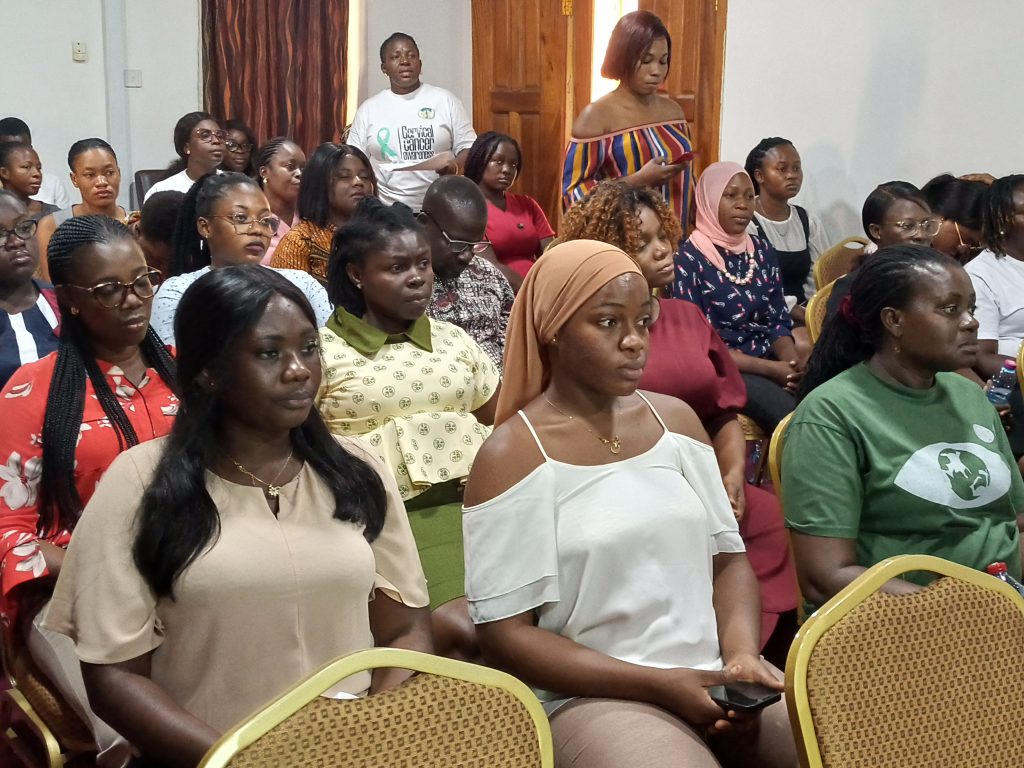By Regina Benneh
Sunyani, Feb. 05, GNA – The Seventh Day Adventist (SDA) Hospital at Fiapre in the Sunyani West Municipality records over 15 cervical cancer cases annually, Dr Elijah Abakah Quansah, an Obstetrician Gynecologist at the Hospital has said.
He said patients with minor cases were treated by the Hospital, while complicated ones were referred to the Komfo Anokye Teaching Hospital (KATH).
Dr Quansah added that a patient who had a successful surgery last year at the Hospital was now living healthily without any complications in an interview with the Ghana News Agency at a seminar on cervical cancer, jointly organised by the Ghana Cocoa Board (COCOBOD) and the Hospital for all female staff of the Cocoa House in Sunyani.
Attended by 42 participants, the seminar aimed at creating cervical cancer awareness as part of the activities of the World Health Organisation’s (WHO’s) quest to draw attention to the disease in January each year.
He announced that four females aged 32 and 42 diagnosed with cervical cancer by the Hospital last week, had been referred to the KATH for further investigations and treatment.
Dr Quansah stated that it was regretful to hear of females dying of cervical cancer, which could easily be prevented to save lives of mothers and breadwinners of families, but for lack of education.
He appealed to the government and health-centred non-governmental organisations to help in educating the public about the dangers of the disease and how it could be prevented.

Dr Quansah advised women to visit any health facility timely to report symptoms of the decease for preliminary treatment and to also check for the prevention of spread of infection to other parts of the body system.
He entreated every sexually active woman to voluntarily go for cervical cancer screening every three years for early detection and treatment and told parents to vaccinate their girl-children of age nine and above against the infection before they become sexually active.
Dr Quansah said cervical cancer remained one of the commonest female cancers globally after breast and lung cancers and research had shown that about 604,000 new cases of cervical cancer, with 342,000 deaths, were recorded annually in the world.
Dr Quansah stated that affected persons at the preliminary stages of the disease would not experience any symptom but could only be detected through screening
He said the disease was mostly caused by people exposed to, infected with the Human Papilloma virus, and underlined some of the major causes of the infections as having multiple sexual partners, early onset of sexual activity, history of sexually transmitted infections like HIV and AIDS, cigarette smoking and long-term use of oral contraceptive pills
Dr Quansah stated non-offensive vaginal discharge, post-coital bleeding, inter-menstrual bleeding, post-menopausal bleeding, and offensive vaginal discharge complications were some of the symptoms of the disease.
He therefore urged the public to eat well-balanced diet to build the immune system to always suppress the virus which caused the disease, adding that more than 90 per cent of women exposed to the disease were able to clear the virus to avoid developing to cancer.
Mr Michael Asumanu, the Bono-Ahafo Regional Administrator of the COCOBD told the GNA in an earlier interview that the Management of COCOBOD initiated several health awareness and screening exercises last year because they realised a lot of staff found it difficult to leave their offices and work to go to the hospital for voluntarily screening.
He noted people could not be active at work if they were not healthy and cited that free breast cancer and eye screening exercises were organised for staff last year and wish to continue this year to ensure healthy living conditions of the staff to be able to work efficiently.
GNA